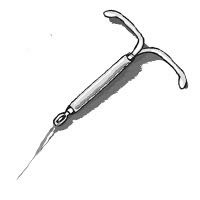 What is SOS for Youth?
It is a centre to reach out to teenagers who requires counselling or listening ear.
Who are We?
As delicated counsellor, we are seeing in an increased in unwanted teenage pregnancy and abortion.
In view of this,we have decided to promote safe sex to reduce the number of unwanted pregnancies and abortion.
Where are we Located?
We are located at Hougang Ave 10, Blk 452 #01-4000 S(530452)
Open daily from 10am-10pm
You may contact us at saveit-safesex@live.com
Hotline: 6440 0100
What is SOS for Youth?
It is a centre to reach out to teenagers who requires counselling or listening ear.
Who are We?
As delicated counsellor, we are seeing in an increased in unwanted teenage pregnancy and abortion.
In view of this,we have decided to promote safe sex to reduce the number of unwanted pregnancies and abortion.
Where are we Located?
We are located at Hougang Ave 10, Blk 452 #01-4000 S(530452)
Open daily from 10am-10pm
You may contact us at saveit-safesex@live.com
Hotline: 6440 0100

What is it?
"It" is referring to the fetus inside the womb
Why save it?
- Abortion does not give the child that is in the womb a chance in life.
- It is wrong and looked down upon by alot of religions.
- It is being responsible for doing what you did.
- It creates feelings of regrets and griefs and feelings of loss and perhaps depression later.
- There are other options.
- You can give your baby up for adoption and give your child a chance in life.

These diseases are classified as Sexually Transmitted Disease (STDs)
Take precaution when having sexual intercourse.
Some preventive measures - DO not engage in mutually monogamous relationship with an infected person.
Aviod having sex with someone who are known to be onfected or at risk of infection
Some forms of protection are effective on both count Example, condoms(fairly trustly form of contraception)
But it's not uncommon to double up your protection; perhaps bu using condoms and contraceptive pill.
Sex can be a dangerous game.
Think twice before acting on it.
Contraceptive Patch
- Looks like a square band-aid.
- Applied to the abdomen, buttocks, upper arm, or upper torso.
- Requires a prescription
- Raised risk of heart attack and stroke.
Female Condom
- Helps protect partners from pregnancy and sexually transmitted infections, including HIV/AIDS.
- Provides a barrier between partners to prevent sharing bodily fluids like semen, blood, or saliva.
- A female condom and a male condom should not be used at the same time.
- Can break or leak.
IUD (IntraUterine Device)
- Intrauterine Device (IUD) is a small object that is inserted through the cervix and placed in the uterus to prevent pregnancy.
- Does not protect against sexually transmitted infections, including HIV/AIDS.
- Can be expelled.
- Can cause more difficult menstrual periods.
- Possible risk to future fertility.
Spermicides
- Kills or disables sperm so that it cannot cause pregnancy.
- Most effective when used consistently and correctly with a barrier method of birth control, like a condom.
- Possible genital irritation
- When used frequently spermicides may irritate the vagina making it easier to catch HIV/STI
Depo Provera (DMPA or Depot Medroxyprogesterone Acetate)
- Stops the ovaries from releasing eggs.
- Causes the cervical mucus to thicken and changes the uterine lining, making it harder for sperm to enter or survive in the uterus.
- Prevent fertilization
- Irregular bleeding
- Most women experience weight gain
Condom
- Helps protect partners from pregnancy and reproductive tract infections, including HIV/AIDS
- Shaped like a penis and is usually made of latex.
- Works by providing a barrier between partners so that bodily fluids, like semen, blood, and saliva, are not shared.
- Can break or leak.
- Possible allergic reaction.
Cervical Cap
- Latex, thimble-shaped device that is inserted into the vagina and fits snugly over the cervix.
- Suction keeps the cap in place.
- Provides a barrier to block sperm from entering the uterus and prevents fertilization.
- Used with spermicidal jellies or creams that kill sperm.
- Requires a fitting in a clinic
Diaphragm
- A thin rubber dome with a springy and flexible rim
- Inserted into the vagina, fits over the cervix and is held in place by vaginal muscles
- Possible allergic reaction
- May increase risk of bladder infections.
Mini-Pills
- Progesterone-only birth control pills
- Come in packs of 28 pills and you take one every day
- Affects the transport of the egg through the fallopian tubes.
- Prevents fertilization.
- Must be taken every day at the same time
- Requires a prescription
Continuous Hormonal Birth Control
- Hormonal methods prevent pregnancy by stopping ovulation and preventing the ovaries from releasing eggs.
- Pills must be taken every day.
- Less effective when taken with some drugs.
- Requires a prescription.
Emergency Contraception
- Pregnancy can be prevented after intercourse by taking Emergency Contraceptive pills (EC)
- EC may be effective up to 120 hours (5 days) after intercourse. But, it is most effective within the first 24 hours
- Most effective when taken as soon as possible after unprotected vaginal intercourse.
- Side effects may include nausea
Birth Control Pills
- Most popular type of birth control
- Come in packs of 21 or 28 pills and to be taken 1 pill everyday
- Hormones in the Pill prevent fertilization.
- Less effective when taken with some drugs
- Requires a prescription
Vasectomy
- A sterilization technique for men
- Without sperm, fertilization of an egg cannot occur and pregnancy is prevented.
- Not immediately effective
- Requires minor surgery in a clinic
- May not be reversible

Abortion
Abortion is commonly the procedure of the removal or explusion of an embryo or fetus from the female's uterus, resulting in death once she had decided not to carry on with her pregnancy.
Abortion can be done by suction using a manual syringe while electric vaccum aspiration abortion uses an electric pump
Side Effects & Complications
The side effects of abortion mayb life threatening including cancer, heart disease and death during surgery.
Complications include uterine hemorrhage, co-existent ectopic pregnancy and more. In addition, many women face mental challenges of depression and regret
Gonorrhea
What is it?
Bacterium that can grow and multiply easily in the warm,moist areas of the reproductive tract. It can also grow in the mouth, throat, eyes and anus.
Signs & Symptoms
Painful when urinating, vaginal bleeding between periods and painful or swollen testicles for men

Chlamydia
What is it?
STD which can damage a woman's reproductive organs including infertility. It can also cause discharge from the penis of an infected man.
Signs & Symptoms
Abnormal vaginal discharge, pain during intercourse and burning sensation when urinating.

Syphilis
What is it?
Sexually Transmitted Disease (STD) caused by the bacterium Treponema Pallidum
Signs & Symptoms
Many people infected with syphilis do not have any symptoms for years, yet remain at risk for late complicationif they are not treated
Bacterial Vaginosis
What is it?
Is a condition in woman where the normal balance of bacteria in the vagina is disrupted and replaced by an overgrowth of certain bacteria
Signs & Symptoms
Abnormal vaginal discharge, burning during urination, itching around outside the vagina
saveit-safesex












